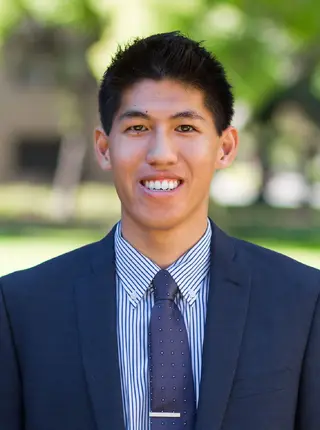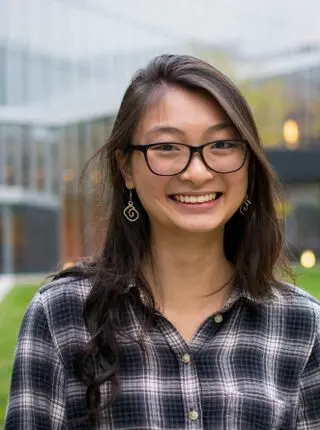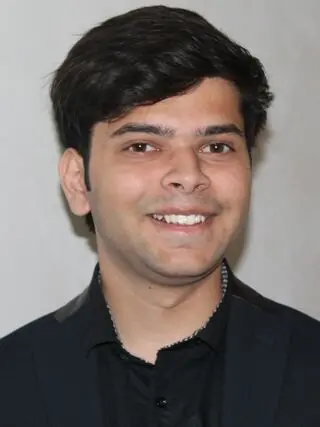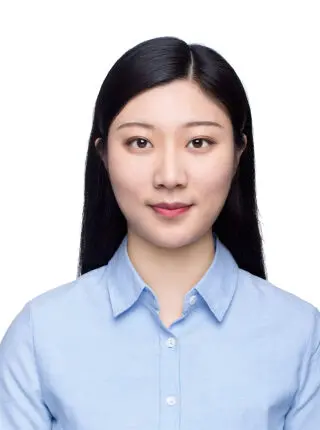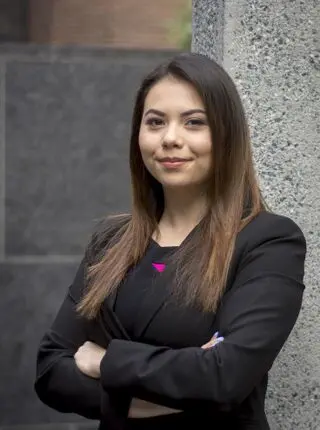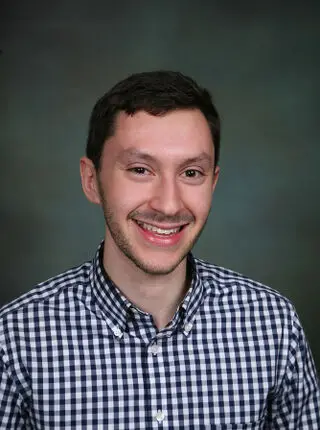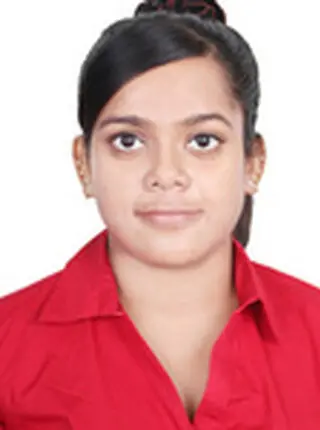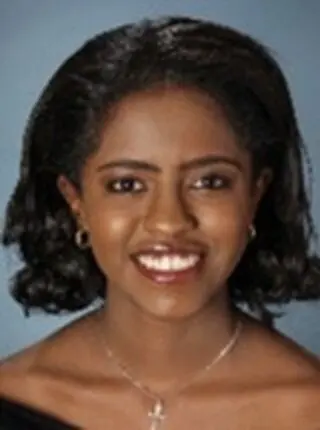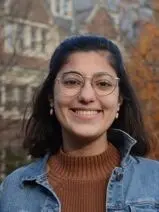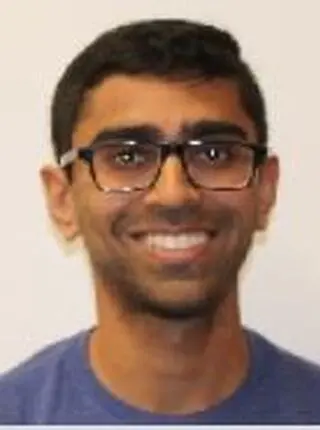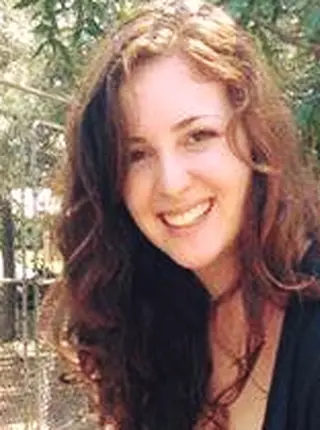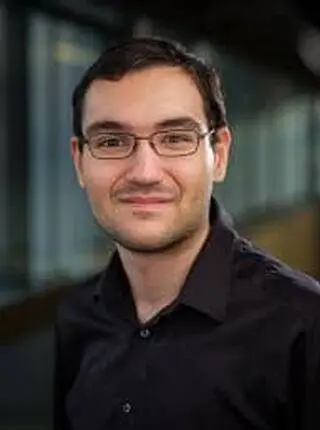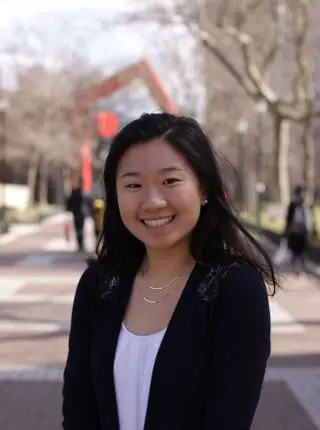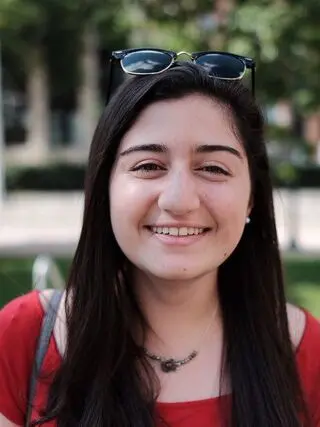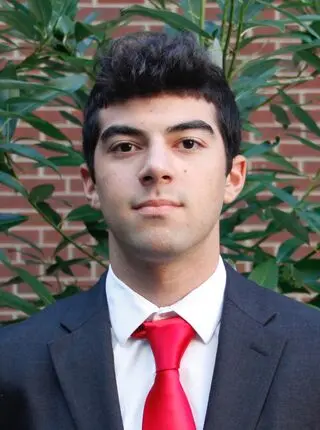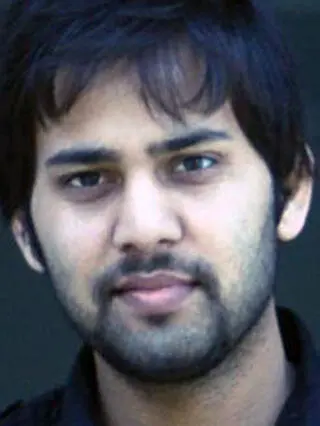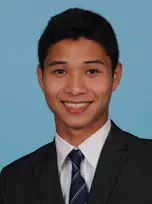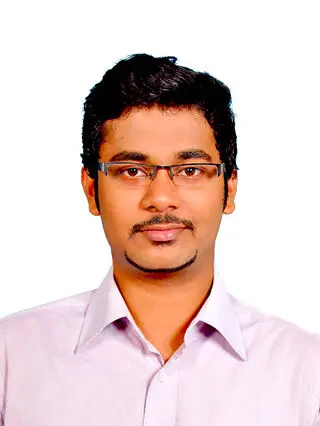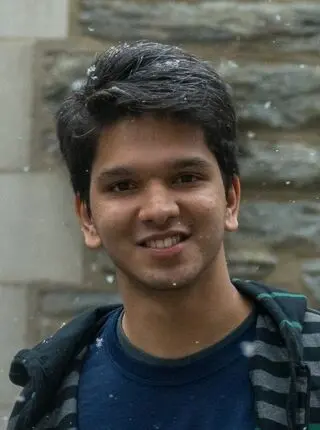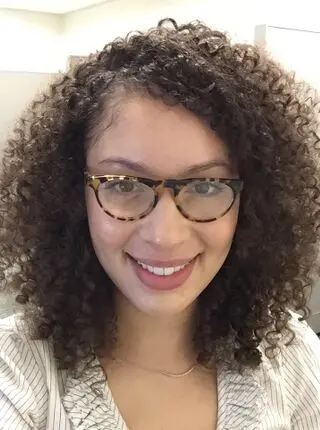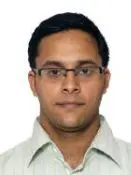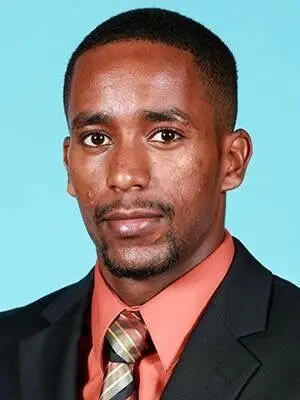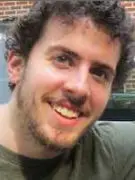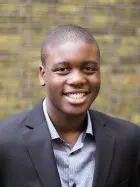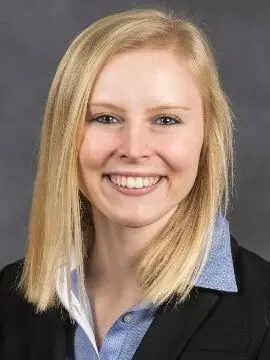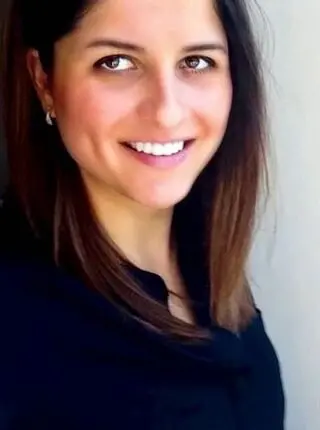Alumni
Graduated PhD
-
Read More about Kevin Bui
Kevin Bui
kevinbui@seas.upenn.edu
Kevin earned his Ph.D. in Bioengineering from the University of Pennsylvania, where his doctoral research focused on designing and testing methods to explore the motor and neurological differences in the HIV+ stroke population. A product of the Bay Area, he completed his undergraduate degree in Bioengineering at Stanford University in 2015, conducting research in mild traumatic brain injury while also playing on the club tennis team. His academic and professional interests center on healthcare innovation and developing solutions to support individuals living with long-term injury. Beyond the lab, Kevin served as a graduate associate in New College House at Penn and contributed to his alma mater as an alumni interviewer for Stanford.
-
Read More about Michael Sobrepera
Michael Sobrepera
MEAM
mjsobrep@seas.upenn.edu
(770)324-6196
Michael Sobrepera Website
Michael earned his PhD in mechanical engineering and applied mechanics at the University of Pennsylvania. His doctoral research focused on building affordable socially assistive robots for upper extremity rehabilitation, with a strong emphasis on translatability, how design decisions shape human–robot interactions, and how these systems can gather data to objectively measure patient performance.
Prior to joining the Rehab Robotics Lab, Michael worked as a research technician at Georgia Tech, where he focused on translating technologies for object tracking and visual serving from academic research to an industrially relevant level of development. He has also previously worked for a medical device company and a pharmaceutical company. Michael earned his Bachelor of Science in Biomedical Engineering with a minor in Computer Science from Georgia Tech. Now, as a graduate-alumnus, he continues to meld his passions for robotics and healthcare technology in the Rehab Robotics Lab. You can learn more about him at his website: michaelsobrepera.com.
Master's Students
-
-
Read More about Jeong Inn Park
Jeong Inn Park
jeonginn@seas.upenn.edu
Sam was a Masters student studying Robotics at the University of Pennsylvania. Sam’s focus was on commercial development of the PANDA Gym and Rehab CARES systems in the lab. He aimed to make both systems more robust, affordable, and deployable for continued research efforts and future directions.
-
Suveer Garg
Suveer Garg
-
Read More about Samuel Gaardsmoe
Samuel Gaardsmoe
sgaa@seas.upenn.edu
Sam was a Masters student studying Robotics at the University of Pennsylvania. Sam’s focus was on commercial development of the PANDA Gym and Rehab CARES systems in the lab. He aimed to make both systems more robust, affordable, and deployable for continued research efforts and future directions.
-
Read More about Gary Lin
Gary Lin
BE, ROBO
lingary@seas.upenn.edu
(718) 790 - 0016
Gary earned his master’s degree in Robotics from the School of Engineering, building on his background in Bioengineering. His research focused on developing affordable rehabilitation robotics for assessment and game-based therapies following neural injury, with a particular emphasis on the RehabCARES platform. His broader interests centered on the design of mechatronic systems and the control algorithms that enable their effective use in healthcare applications.
-
Read More about Ajay Anand
Ajay Anand
ROBO
anandaj@seas.upenn.edu
Ajay Anand was a research engineer at the Rehab Robotics Lab, where he contributed to the Flo Robot Project with a focus on building affordable and accessible socially assistive robots for upper extremity rehabilitation. He earned his master’s degree in Robotics from the University of Pennsylvania after completing his undergraduate studies in Mechatronics Engineering with a minor in Robotics and Automation at Manipal University, Dubai. During his time in the lab, his work centered on designing novel socially assistive rehabilitation robots and examining how design choices influence their effectiveness in patient interactions.
Research Interests: Human–Robot Interaction, Social Robotics, Computer Vision, Deep Learning, Robot Design, Mobile Robots, Autonomous Navigation.
Undergraduate Students
-

-
-

-
-

-
Read More about Julie Elfishawy
Julie Elfishawy
jelfisha@sas.upenn.edu
Julie studied Cognitive Science and Healthcare Management at the University of Pennsylvania. During her time in the Rehabilitation Robotics Lab, she investigated the use of the humanoid social robot Lil’Flo for the treatment of dementia patients, with a focus on engagement and cognitive stimulation. Her project also explored metrics to evaluate patient engagement and cognition during human–robot interaction, employing methods such as video coding schemes and scored assessment tasks. Julie’s interests spanned healthcare practice and medical device systems, and her work in the lab served as a foundation for expanding her research in these areas.
-
-
Read More about Sharfin Islam
Sharfin Islam
Sharfin Islam
Sharfin is a junior mechanical engineering student at Carnegie Mellon. His work in the Rehab Robotics Lab focuses on using the Bi-ADLER system to help stroke patients retrain bi-lateral and uni-lateral functions in activities of daily living. Sharfin is mainly interested in the application of robotics and mechanical systems to improve healthcare. In his previous work at the University of Pittsburgh, Sharfin assisted in the development of a lower-extremity FES exoskeleton. Sharfin hopes to continue his work in medical robotics and further his education at the graduate level.
-

-
Read More about Maria Ovando
Maria Ovando
Maria Ovando
Maria is a Junior in Bioengineering with an interest in Engineering Entrepreneurship and Mechanical Engineering. Her fields of interests are medical devices, biomechanics, and product development. She is interested in learning how products in the different medical fields are developed following industry standards and how companies optimize the product pipeline. Her current focus in the lab is the force platform part of the Rehab C.A.R.E.S system aimed to provide low cost gait and balance assessment and rehabilitation for post-stroke patients.
Former Lab Graduate Students
-

-
Read More about Vatsala Goyal
Vatsala Goyal
Vatsala Goyal
Vatsala received her M.S.E. in Bioengineering at the University of Pennsylvania. She has been interested in robotic therapy since her experience in high school interning at a rehab robotics lab in DC. In the rehab robotics lab, she worked on the SmarToyGym project, which will be used for the assessment of motor delays and impairments in pre-term infants in their first year. The end goal is to use the setup as a predictive measure for movement disorders, such as cerebral palsy, in order to start rehabilitation early. She also holds a B.S.E. degree in Bioengineering from the University of Pennsylvania.
-
Read More about Aaron Rubenstein
Aaron Rubenstein
Aaron Rubenstein
Aaron pursued a PhD in Mechanical Engineering and Applied Mechanics with a focus in medical device design and development at the University of Pennsylvania. He began his graduate studies by identifying technological gaps in the areas of affordability and accessibility within rehabilitation robotic devices. He previously worked as a Product Development Engineer at MPR Associates in Alexandria, VA, where he designed, prototyped and tested components of existing and new medical technologies. He graduated with a bachelors in Bioengineering from the University of Maryland, College Park in 2014.
-
Read More about Mayumi Mohan
Mayumi Mohan
Mayumi Mohan
Mayumi received her master’s in Robotics at the University of Pennsylvania she also has an undergraduate degree in Computer Science. She is intrigued by the application of Robotics in the field of medicine and how it can be beneficial to society. In the lab, she worked on the Baxter project. Her focus was on analyzing and quantifying therapist-patient interactions for kinematic re-targeting on to a humanoid.
-
Read More about Shreyas Skandan
Shreyas Skandan
Shreyas Skandan
Shreyas received a Master's degree in Robotics at the University of Pennsylvania and holds a Bachelor’s degree in Computer Science and Engineering. His primary interest is in the application of Computer Vision and Machine Learning techniques. He worked to develop a multi-camera vision (stereo and time-of-flight cameras) system for the Smart Toy Gym project to track infant pose and motion in 3D. He was interested in applying Deep Learning techniques to understand and evaluate the risk of cerebral palsy in infants using the Smart Toy and Camera data.
-

-

-
Read More about Mahelet Asrat
Mahelet Asrat
maheleta@seas.upenn.edu
Mahelet Asrat is a rising sophomore in Bioengineering at the University of Pennsylvania. Her work at the lab dealt with the Upper Extremity Carci machine which is a part of a larger system, Rehab CARES gym, that aims at providing low cost robot exercise system for low- and middle-income countries (LMICs). During her time at the lab she was involved with designing a two-player made mode and assessing motivation and Upper Limb Motion in the two-player game mode and single player game mode of the ExerGame. Her experience at the lab has made her interested in robotics and the potential it has in improving health care for LMICs.
-
-
-

-
Read More about Andrea Frank
Andrea Frank
Andrea Frank
Andrea received a BSE in Bioengineering and an MSE in Robotics from Penn. She was awarded the NSF/LSAMP grant to work in the Robotics Rehabilitation Lab on expanding the portable, low-cost stroke rehabilitation system Thera Drive for balance rehabilitation. Citing literature's validation of the Nintendo Wii Balance Board (WBB) as a low-cost stand-in for laboratory grade force plates, she designed and tested a multiple WBB system for standing and dynamic balance rehabilitation. Andrea's proof-of-concept of the system using 5 healthy lab members won her 1st place in the UPenn NSF/LSAMP poster competition. She then worked to expand her research to validate the system for use with stroke patients, and to study the efficacy of longer-term training on the system.
-
Read More about Ali Marcus
Ali Marcus
Ali Marcus
Studied Mechanical Engineering with a Computer Science minor at Penn. She has a background in biotechnology, and worked on the Theradrive and on the SmarToyGym, which aims to diagnose young infants with cerebral palsy. Ali hopes to continue to integrate global accessibility and healthcare into her career.
-
-
Read More about Susan Zhao
Susan Zhao
suzhao@seas.upenn.edu
Susan is currently a sophomore studying Mechanical Engineering and Applied Mechanics at the University of Pennsylvania. She is working on the SmarToyGym project, analyzing infant movement to understand and detect the risk of cerebral palsy in infants. Susan is excited to further her knowledge in robotics through her experiences in the Rehab Robotics Lab, with hopes of pursuing mechatronics.
-
Jaimie Carlson
Jaimie Carlson
-
Matthew Roland
Matthew Roland
-
Leora Korn
Leora Korn
-
-
Tim Kulesza
Tim Kulesza
-

Weiyu Du
Weiyu Du
-

Andrew Levine
Andrew Levine
-

Weishi Wang
Weishi Wang
-

Shyon Small
Shyon Small
-

Yudan (Danielle) Chen
Yudan (Danielle) Chen
-

Jagtar Singh
Jagtar Singh
-

Alamelu Thinnappan
Alamelu Thinnappan
-
Read More about Suneet Sharma
Suneet Sharma
Suneet Sharma
Suneet was a graduate student in MSE: Integrate Product Design at University of Pennsylvania. At the Rehabilitation Robotics Lab, he worked on the need finding, qualitative analysis, and design aspects of a "Mobile Service Robot for Elderly." Suneet is a product designer and a passionate change agent. He is firm believer in the power of science, technology and design in addressing today’s complex socio-economic issues and market needs.
-
Read More about Gabriel Borja
Gabriel Borja
Gabriel Borja
Gabriel was a Master’s student in Bioengineering at the University of Pennsylvania. He is extremely passionate about the intersection of engineering, medicine, and technology. At the Rehabilitation Robotics Lab, he worked on overhauling and upgrading the Bilateral Assessment System. His work focused on making the BIAS more robust by using Arduino and Processing to streamline data collection and analysis. He also worked on integrating electrocardiogram (ECG), and bicep and tricep electromyogram (EMG) signals to the BIAS. He hopes that his work can help increase the understanding of upper limb motor control of adults with cerebral palsy during functional tasks.
-
Read More about Sarath Kumar Barathi
Sarath Kumar Barathi
Sarath Kumar Barathi
Sarath was a Master's student in Robotics at the University of Pennsylvania. He holds a Bachelor's degree in Mechanical Engineering from the Indian Institute of Technology Madras, India. His research interests lie in Control Systems, Mechatronics and Robot design. He worked on developing an active controller for the ADLER robot which would dynamically adjust the trajectory and the force output from the robot by taking feedback from the Kinect motion sensing device. This controller would help in providing effective assistance to the stroke survivors while performing the daily activities on the robot.
-
Read More about Nicholas Vivio
Nicholas Vivio
Nicholas Vivio
Nicholas was the lab’s Clinical Research Coordinator. Prior to UPenn, he worked for two years in a similar capacity in The Department of Neurological Surgery at Washington University in St. Louis. There he worked with a peripheral neurosurgeon whose specialty was post-trauma reconstruction via nerve transfers and the quantitative tracking of post-surgery rehabilitation. Nick’s other professional interests include global health and epidemiology. He has worked in makeshift medical clinics throughout Central America, and recently managed and led a team of U.S. physicians and nurses to Panama in both 2010 and 2012. Prior to reorienting his career towards medicine, he worked at Goldman Sachs for 3 years, and interned both at the U.S. State Department in Tegucigalpa, Honduras and the United Nations Development Fund. Nick holds a Bachelor’s Degree in Economics from Truman State University, a Master’s Degree in International Relations from New York University, and a Post-Baccalaureate Certificate in Premedical Studies from Washington University in St. Louis. He has been published in Clinical Neurology and Neurosurgery and the Economist magazine.
-
Read More about Elaida Dimwamwa
Elaida Dimwamwa
Elaida Dimwamwa
Elaida was a Senior in Bioengineering at the University of Pennsylvania. She was awarded an NSF Louis Stokes Alliance for Minority Participation Grant to perform research in the lab of choosing at her home institution, UPenn. Due to her budding interest in biomechanics, she chose to work in the Rehabilitation Robotics Lab. During her time here, she worked to develop a kinematic model that analyzes the bilateral, upper -limb movements associated with activities of daily living, across and within different cohorts of subjects. The five cohorts include patients with cerebral palsy, post-stroke, upper-limb amputees, spinal cord injury, and healthy controls. The lab plans to build upon her summer research to develop an understanding through which future rehabilitation devices can be developed.
-
Read More about Akshay Varik
Akshay Varik
Akshay Varik
Akshay pursued his Master's Degree in Mechanical Engineering and Applied Mechanics at the University of Pennsylvania with a focus on Design and Manufacturing. In the past he worked on the mechanical designing aspects of the TheraDrive system, a low cost high force haptic robot with a single degree of freedom which is being deployed for patient rehabilitation in Mexico. A majority of his work was modeling and designing the framework of the system. He is currently working on designing an undisclosed project to make it more cost effective, portable, and easier to operate and assemble.
-
Read More about Marisa Moreta
Marisa Moreta
Marisa Moreta
Marisa
was a 4th year medical student at Rowan School of Osteopathic Medicine. Her major interest is in Physical Medicine and Rehabilitation. Prior to entering medical school Marisa worked for three years doing research in sleep and psychiatry at the Unit for Experimental Psychiatry at the University of Pennsylvania. As an undergraduate student at UPenn, Marisa earned her Bachelor's Degree in the Biological Basis of Behavior. Marisa is investigated the benefits of the Ekso - a robotic exoskeleton assistive walking device that helps people with lower extremity weakness to ambulate. Her goal was to investigate spinal cord injury patients who have used the Ekso, as well as to help design a pilot study for the same patient population, in order to gain an understanding of how and why using the Ekso causes improvements in bowel and bladder function.
-
Read More about Shyamsundar Ramanathan
Shyamsundar Ramanathan
Shyamsundar Ramanathan
Shyamsundar holds a Master's degree in Mechanical Engineering and Applied Mechanics with a focus on Robotics, Mechatronics and Automation. He worked on the electronics firmware of the modular version of the Haptic TheraDrive deployed for patient rehabilitation in Mexico. The newer version eliminated the need of a desktop computer, thus making the system more compact and portable. Shyam also worked on efficient control algorithms for providing force-feedback, not only while performing regular tasks on the TheraDrive, but also during games where patients had an enjoyable and motivating rehabilitation experience.
-
Read More about Anushree Singh
Anushree Singh
Anushree Singh
Anushree holds a Master's degree in Robotics from the University of Pennsylvania. Her undergraduate degree was Electronics and Instrumentation from the Vellore Institute of Technology, India. Working on the Bi-ADLER project, a novel extension in robotic assisted therapy, which specializes in helping patients with upper extremity impairment, her goal was to develop a control algorithm for assistive tasks related to activities of daily living.
-
Read More about Addwiteey Chrungoo
Addwiteey Chrungoo
Addwiteey Chrungoo
Addwiteey holds a Master's degree in Robotics from the School of Engineering and Applied Sciences at the University of Pennsylvania, and a member of the prestigious GRASP Laboratory at UPenn. He also pursued his thesis at the Rehabilitation Robotics Lab and is focused on the Adler Project. Prior to joining UPenn, Addwiteey was a Research Assistant in the Reconfigurable Robotics Lab at the Indian Institute of Technology in Madras, India. He was also a Research Intern at the Robotics Institute at Carnegie Mellon University. As an undergraduate, he interned at the Institute for Systems and Robotics in Lisbon, Portugal. Addwiteey holds a B.Tech in Electronics and Communication Engineering from Amity University, India. His research interests are vast: visual perception for robotics; human robot interaction; social robotics; and robot learning.His publications are as follows: A. Chrungoo, Manimaran SS, Ravindran B., “Activity Recognition for Natural Human Robot Interaction”, To appear in the Proceedings of the 2014 International Conference on Social Robotics(ICSR 2014) A. Chrungoo, A. Kumar, P. Kumar, J.P. Godara, “On adaptive HVAC based on a De-Centralized algorithm using K:1 transmission protocol for Autonomous Wireless Sensor Network,” in the proceedings of the Sixth IEEE International Conference on Wireless Communication and Sensor Networks (WCSN 2010)
-
Read More about Carina Lott
Carina Lott
Carina Lott
Carina was a Senior studying Bioengineering at the University of Pennsylvania. Previously, she worked in X. Sherry Liu’s Orthopaedic Research Lab, where she participated in studies of biological processes in bone and on how they influence bone material, micro structural, and biomechanical properties with aging, disease, and therapies. Carina worked in the Rehabilitation Robotics Lab focusing her project on increasing the understanding of upper limb motor control of adults with cerebral palsy during functional tasks. In this project, she utilized the BiAS system.
-
Read More about Henok Abraham
Henok Abraham
Henok Abraham
Henok was a junior studying Bioengineering at the University of Pennsylvania. He was awarded an NSF Louis Stokes Alliance for Minority participation grant to conduct research in the STEM field at the UPenn and its affiliated labs. During his time at the Rehabilitation Robotics Lab, Henok worked on the Case Studies in HIV and Strokes project. Major objectives of his project included collecting data on neuroplasticity and quantifying the motor and cognitive changes during robot-assisted therapy after HIV and Stroke.
-
Read More about Dalton Banks
Dalton Banks
Dalton Banks
Dalton holds a Master’s degree in Robotics from the University of Pennsylvania, having studied Bioengineering at Penn for undergrad, and was focused on robotics for neurorehabilitation, intelligent assistive technology, and the gamification of rehabilitation regimens. More broadly, his interest is in the role robotics and technology can play in helping people with physical disabilities to achieve both short-term and long-term independence. At the lab, he explored new modes of rehab with the TheraDrive system, and worked on redesigning it to be more compact and cost-effective.
-
Read More about Oladayo Adewole
Oladayo Adewole
Oladayo Adewole
Oladayo holds a Master’s degree in Robotics from the University of Pennsylvania, where he received a Bachelor’s in Bioengineering. His major interests lie at the junction of mechatronics and biology, primarily in prosthetic interfaces. He worked in a Neural Engineering and Neurotrauma Laboratory as well as the Rehabilitation Robotics Lab. Particularly, he worked with the haptic TheraDrive system, which aims to encourage the recovery of muscular strength and coordination. He developed a computer model of the upper arm coupled with the TheraDrive to better quantify and analyze its neuromuscular effects. In doing so, the lab gained the ability to estimate muscular tensions during exercise and any significant changes therein from continued use of the TheraDrive system. Additionally, Oladayo investigated the potential of using EMG signals as supplementary control inputs for the haptic TheraDrive.
-
Read More about Priyanka Shirsat
Priyanka Shirsat
Priyanka Shirsat
Priyanka holds a Master’s degree in Mechanical Engineering and Applied Mechanics with a focus on Robotics and Mechanical Design and Manufacturing. She worked on the ADLER (Activities of Daily Living Exercise Robot) project. ADLER is a robot, aimed at providing robot-assisted therapy to stroke survivors in order to help them improve their motor skills. Priyanka’s tasks included modeling the robotic system and developing a trajectory model for it, so that it could adapt to the changes in the stimuli on the fly. She also worked on programming the controls strategy for the robot, which provided efficient and effective assistive therapy.
Former NSF RET Teacher Lab Members
-
Eunice Ko
Eunice Ko
-

Chantelle Smith
Chantelle Smith
-
-

High School Students
Former Lab Staff
-
Read More about Roshan Rai, MS
Roshan Rai, MS
Roshan Rai, MS
Roshan was born and raised in northeastern India. While in high school, he won a coveted scholarship from the Pestalozzi International Village Trust Foundation, which led him to the U.K. to pursue his International Baccalaureate Diploma. From there he was selected as a Penn World Scholar, where he completed both his Bachelor’s and Master’s Degrees in Mechanical Engineering and Applied Mechanics from the University of Pennsylvania. He was the Lab Engineer/Manager at the Rehabilitation Robotics Lab. Along with managing the lab, he was responsible for troubleshooting issues that arose with any robot, machine or system in the lab, and assisting research assistants and students with their projects. From a project perspective, most of his work was focused on the development of the TheraDrive and mobile service robot systems. Roshan is known to be indispensable in that he utilizes his engineering acumen to serve as the lab’s jack of all trades.
-

David Dimatties
David Dimatties
-
Read More about Megan Johnson
Megan Johnson
Megan Johnson
Megan was the lab's Clinical Research Coordinator. She is now pursuing her MD at Philadelphia College of Osteopathic Medicine. Prior to reorienting her career towards medicine, she received her Bachelor's degree from Saint Joseph's University in Accounting with a minor in Political Science, interning for Phelan Hallinan Diamond and Jones, LLC, The Public Defenders' Service of Washington, D.C., F.X. Cassidy and Associates, PC, and KPMG. Before coming to our lab, she was a research assistant at the Children's Hospital of Philadelphia in the Emergency Department. Megan is also very interested in personal health and fitness and is a certified personal trainer.
-
Read More about Romi Jin
Romi Jin
romijin@sas.upenn.edu
Romi completed a Post-Baccalaureate Pre-Health program at the University of Pennsylvania after earning her undergraduate degree in Architecture from Carnegie Mellon University. Inspired by a career transition into medicine and a particular fascination with surgery—especially neurosurgery—she joined the Rehabilitation Robotics Lab to contribute to research that aligned with both her interests in neuroscience and her commitment to affordability in healthcare. Her work in the lab reflected her broader goal of reducing health disparities and advancing health equity.
-
Read More about Kristine Lima
Kristine Lima
kristine.lima@uphs.upenn.edu
Kristine is a certified clinical research professional with three years of experience as a Clinical Research Coordinator. Kristine was first introduced to clinical research in the August 2014 where she worked as a Research Assistant for the Center for Sleep & Circadian Neurobiology (CSCN) at the University of Pennsylvania. Kristine later moved into a Clinical Research Coordinator role where she supported research projects for various teams within the Penn Medicine network, where she was responsible for protocol preparation, budget proposals, hosting external audits, negotiating study contracts, drug/device accountability, IRB submissions, sample collection and processing, subject recruitment, material and data management and analysis. While at Penn, Kristine has worked in various therapeutic areas, including orthopaedic surgery and radiology. Before joining the lab in July 2018, Kristine also worked for Merck & Co., where she lead product and process development studies for sterile/liquid products and oversaw the preparation of materials for clinical trials and stability studies. Kristine holds a Bachelor of Science in Biology from Temple University and is a member of the Society of Clinical Research Associates (SOCRA) and the Association of Clinical Research Professionals (ARCP).


